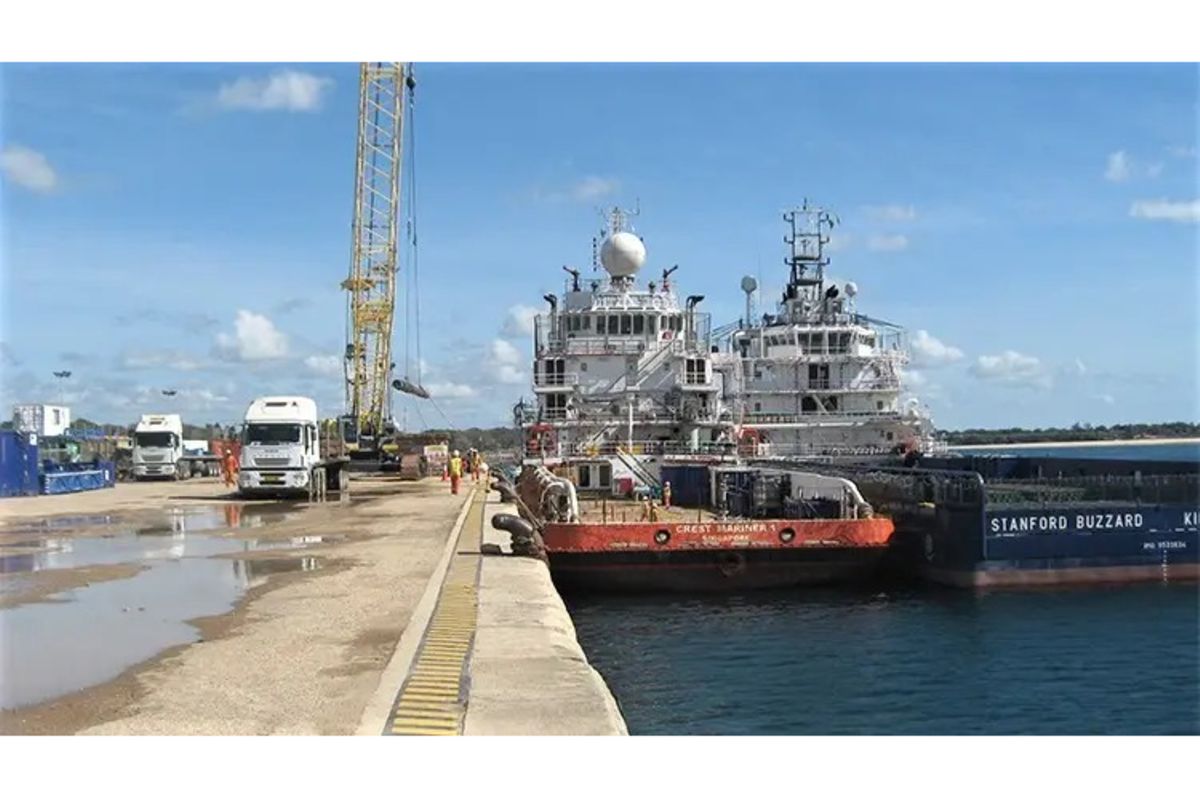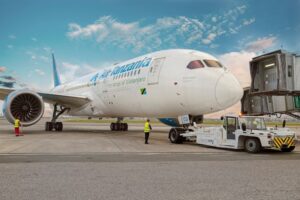
Mtwara, Tanzania.
Trade between Tanzania and Comoro through Mtwara port is expected to increase by several folds following the current business volume compared to last fiscal year.
According to acting Mtwara port Manager, James Ng’wandu, the last fiscal year that ended June, 2022 the volume was 15,760 tones whereas the port has already recorded 9,585 tones in the first half of the year (from July to December 2022//2023).
Ng’wandu said number of vessels has also increased with 17 vessels sailing to Comoro in the first half compared to 18 vessels that made the journey in 2022/2023.
“In short cement is the leading commodity from Tanzania to Comoro followed by juices, building materials and others,” he said.
According to him 97 percent of cargoes shipped to Comoro was cement during 2021/2022 compared to 86 percent in the six months of this financial year.
Speaking at the event, Governor of the Ngazidja Island, Sitti Farouts paid a courtesy call to where she said Mtwara port is key for trade between the two countries.
Mtwara Regional Commissioner, Colonel Ahmed Abbas Ahmed said that the region has great business pontential compared to other parts of the country.
He said the two days visit of the Governor of Ngazidja Island will lead to signing of agreements between the two parts on various bilateral issues.
Share this news
This Year’s Most Read News Stories

High Court rejects Transworld’s application
The High Court in Dar es Salaam has struck out an application in which Transworld Aviation, a ground handler at the Abeid Aman Karume International Airport (AAKIA) was seeking permission to sue the Tanzania Civil Aviation Authority (TCAA).Continue Reading

Zanzibar airport operators decry job losses over Dubai deal
Tanzania air operators say over 600 workers are set to lose their jobs after the semi-autonomous government of Zanzibar awarded a Dubai-based company exclusive rights to handle ground services at a refurbished airport.
The Tanzania Air Operators Association (Taoa) said in a statement that the contract awarded to Dnata, which is registered at the London Stock Exchange, was in breach of the law banning any company from having exclusive rights to ground-handling services at major airports.Continue Reading

Karume faults lease of Zanzibar Islets
Diplomat Ali Karume has faulted the decision by the revolutionary government of Zanzibar to lease the islets that surround the islands of Unguja and Pemba to private developers saying it was absolutely not in Zanzibar’s national interests.Continue Reading










